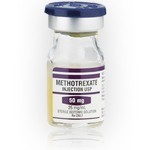Psoriasis: Causes and Treatment Options


Psoriasis is a chronic autoimmune disorder that primarily affects the skin, causing the rapid buildup of skin cells. This leads to the formation of scaly patches, commonly seen on the elbows, knees, scalp, and back. While it is not a contagious disease, psoriasis can significantly impact the lives of those who suffer from it, causing both physical and emotional distress.
What is the Main Reason for Psoriasis?
The primary cause of psoriasis lies in the immune system. In a typical immune response, the body identifies and attacks foreign invaders like bacteria or viruses. However, in individuals with psoriasis, the immune system mistakenly targets healthy skin cells, leading to their rapid production. The overactive immune system prompts skin cells to multiply at an accelerated rate — up to 10 times faster than normal. This results in the accumulation of skin cells on the surface, forming thick, scaly patches that are characteristic of psoriasis.
Genetics play a significant role in determining whether a person will develop psoriasis. Studies have shown that individuals with a family history of the condition are more likely to develop it themselves. Furthermore, specific genetic variations, particularly those related to the immune system, increase the risk of psoriasis. These genetic predispositions can be triggered by environmental factors, such as infections, injuries, medications, or changes in the immune system, all of which can exacerbate the condition.
Will Psoriasis Ever Go Away?
Currently, there is no known cure for psoriasis, and it is considered a lifelong condition. However, the severity and symptoms of psoriasis can vary greatly from one individual to another. Some people may experience long periods of remission, where the skin appears clear and the symptoms subside. Others may face persistent flare-ups.
While psoriasis does not disappear entirely, it can be managed effectively with proper treatment. The goal of treatment is to control symptoms, reduce inflammation, and slow the overproduction of skin cells. In some cases, psoriasis may even go into remission for extended periods with the right combination of treatments.
It is important to note that psoriasis can flare up unpredictably. Factors such as stress, changes in weather, and infections can trigger flare-ups, making it challenging for individuals to predict when they might experience symptoms. In many cases, lifestyle changes and a tailored treatment plan can significantly reduce the frequency and intensity of flare-ups.
What is the Best Way to Treat Psoriasis?
There is no single treatment that works for everyone with psoriasis, as the condition can vary in severity and manifestation. However, a variety of treatments are available, ranging from topical treatments to systemic therapies and biologic medications. The best treatment approach depends on the individual’s health, the severity of the condition, and the areas of skin affected.
- Topical Treatments: These are often the first line of treatment for psoriasis. They include corticosteroid creams and ointments, which reduce inflammation and help manage flare-ups. Other topical treatments include vitamin D analogs, such as calcipotriene, which slow skin cell growth, and topical retinoids, which help normalize skin cell production.
- Phototherapy: In cases where topical treatments are not effective, phototherapy may be recommended. This treatment involves exposing the skin to ultraviolet (UV) light under medical supervision. UVB light therapy can slow down the growth of skin cells and reduce inflammation. Phototherapy is often used for moderate to severe psoriasis, especially when large areas of the body are affected.
- Systemic Treatments: For individuals with severe psoriasis, oral medications or injections may be prescribed. These medications work throughout the entire body and help suppress the overactive immune response. Methotrexate, cyclosporine, and acitretin are examples of systemic treatments used to treat psoriasis.
- Biologic Medications: Biologic treatments are relatively new and have become increasingly popular for patients with moderate to severe psoriasis who have not responded to other therapies. These medications target specific immune system molecules that contribute to the development of psoriasis. Biologics are typically administered through injections or infusions and have shown excellent results in reducing psoriasis symptoms and maintaining long-term remission.
In addition to these medical treatments, patients are encouraged to adopt a comprehensive skincare routine. Regular moisturizing can prevent dryness and reduce the itching associated with psoriasis. Bathing in lukewarm water with colloidal oatmeal or Epsom salts can help soothe the skin. Avoiding skin irritants, such as harsh soaps or perfumes, can also minimize flare-ups.
Is Psoriasis Brought on by Stress?
While stress is not the primary cause of psoriasis, it can trigger flare-ups in individuals who are already genetically predisposed to the condition. The relationship between stress and psoriasis is complex and still not fully understood. Stress activates the immune system, which, in turn, can exacerbate inflammation and skin cell turnover in individuals with psoriasis.
Various forms of stress — whether emotional, physical, or psychological — can act as triggers for psoriasis. Major life events, work-related stress, or personal conflicts can lead to flare-ups or worsen existing symptoms. Additionally, the physical stress of an illness or infection can also trigger psoriasis symptoms in some individuals.
Managing stress is an important part of psoriasis treatment. Practicing stress-reduction techniques, such as meditation, yoga, deep breathing exercises, or engaging in hobbies and physical activity, can help mitigate flare-ups. People with psoriasis should also consider maintaining a balanced lifestyle, including getting enough sleep, eating a healthy diet, and participating in regular exercise to improve overall well-being.
The Role of Methotrexate in the Treatment of Psoriasis
Methotrexate is one of the most commonly used systemic treatments for psoriasis, particularly for moderate to severe cases. Methotrexate is an immunosuppressant medication that works by inhibiting the activity of the immune system, specifically targeting the production of inflammatory cytokines that contribute to psoriasis flare-ups.
In psoriasis, the immune system mistakenly targets the skin, causing rapid skin cell turnover. Methotrexate helps to reduce this overproduction by suppressing the immune response. It is often prescribed for individuals whose psoriasis is not responding to topical treatments or phototherapy. It is typically taken orally in pill form or administered as an injection.
Although Methotrexate is highly effective in controlling psoriasis symptoms, it does come with potential side effects. These can include liver toxicity, stomach irritation, and suppression of bone marrow, which can reduce blood cell production. Because of these risks, patients on Methotrexate are closely monitored through regular blood tests to ensure liver and kidney function remains stable.
Methotrexate is often used in combination with other treatments to maximize its effectiveness. For instance, it may be prescribed alongside topical treatments or phototherapy to manage flare-ups. However, because it is a potent immunosuppressive drug, it is generally reserved for more severe cases of psoriasis that do not respond to less aggressive treatments.
Conclusion
Psoriasis is a chronic condition with no known cure, but it can be effectively managed through a combination of treatments. The underlying cause of psoriasis is a malfunction of the immune system, which leads to an overproduction of skin cells. While it may not ever go away completely, psoriasis can be controlled and kept in remission for extended periods with the right treatment plan.
Methotrexate plays a significant role in the treatment of severe psoriasis by suppressing the immune system’s activity and reducing skin cell turnover. Alongside medical therapies, lifestyle modifications, stress management, and skincare routines can help alleviate symptoms and improve the quality of life for those affected by this challenging condition.
Medically Reviewed by Dr. Faride Ramos, MD
(Updated at Jul 5 / 2025)

